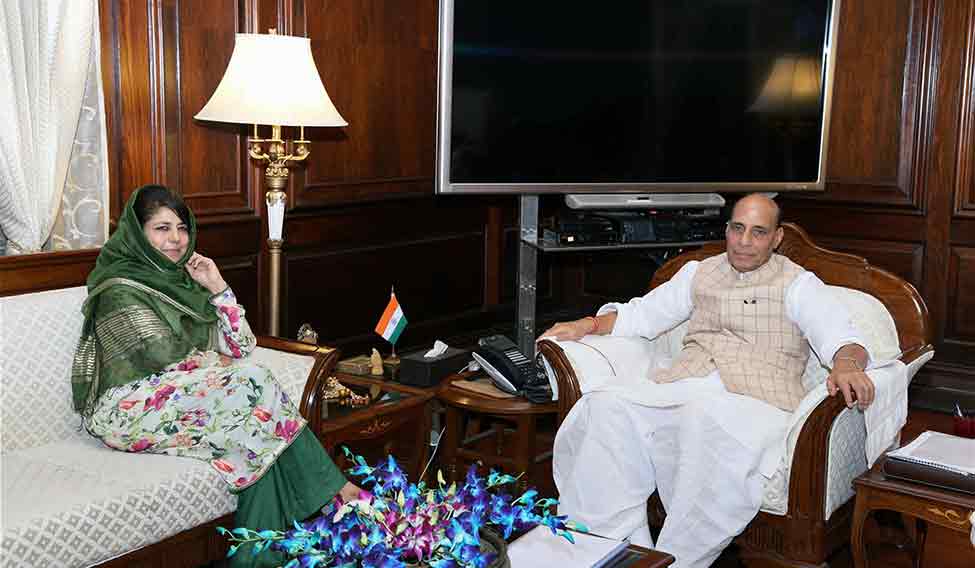On August 9, Prime Minister Narendra Modi broke his silence on the latest wave of anger in Jammu and Kashmir, which followed the death of Hizbul Mujahideen commander Burhan Wani at the hands of security forces on July 8. At a public meeting in Bhabhra, Madhya Pradesh, Modi said: “Every Indian loves Kashmir. Be it the Jammu and Kashmir government under Mehbooba Mufti or the Central government, we are finding solutions to all problems through development. We walk the path that [former prime minister] Atal Bihari Vajpayee took when it comes to Kashmir.”
Modi had spoken a month after Wani's killing and under intense pressure from the opposition in Parliament.
The statement, however, has failed to generate hope of ending the unrest in Kashmir that cost 56 lives and caused injuries to more than 5,000 people.
Apparently, Modi invoked Vajpayee after Mehbooba Mufti met Union Home Minister Rajnath Singh on August 8 and urged the Centre to follow Vajpayee's path and initiate a dialogue with the people of Kashmir.
However, analysts said that though Modi talked about Vajpayee's doctrine of insaniyat (humanity), jamhuriyat (democracy) and Kashmiriyat, he is unlikely to adopt it. BJP general secretary Ram Madhav said the state government must act tough against separatist forces. “The Central government is extending all support to normalise the situation in the state, but more work needs to be done,” he said. “Our policies on Kashmir have not changed. And there is only one policy—Kashmir is an integral part of India.”
Reacting to Modi's statement, former chief minister Omar Abdullah of the National Conference tweeted: “Herein lies the crux of the problem—the unwillingness to accept that development doesn't solve all problems.”
Said National Conference MLA Ali Mohammad Sagar: “If it was about development, Kashmiris would not be protesting even after the Rs 80,000 crore development package announced by Modi a few months back in Kashmir.”
Separatists, too, reacted sharply. Said Hurriyat Conference (G) chairman Syed Ali Geelani: “It is ridiculous on the part of Modi to look at the Kashmir issue through his fake rhetoric of development. The inner beast of Gujarat 2002 is still thriving in him despite becoming prime minister.”
Historian Siddiq Wahid said the situation would worsen if the Indian government continued to ignore it. “There is a dire need to have a sustained and serious dialogue on Kashmir in view of the present crisis,” he said.
For ordinary Kashmiris, Modi's words meant little. “They don't feel our pain,” said Mushtaq Ahmed, a resident of Downtown Srinagar, which has witnessed crippling restrictions. “If he [Modi] was not prodded by the opposition, he would not have bothered to talk about the plight of Kashmiris. They worry about Kashmir and not the Kashmiris.”
The Peoples Democratic Party, sources said, is also not pleased with the talk of solving the Kashmir issue through economic development. The Centre has so far tackled the crisis as a law and order problem, and Mehbooba, in particular, is feeling the heat. If Modi doesn't extend an olive branch to the people of Kashmir, Mehbooba's unpopularity would only grow. It will also be a huge setback to mainstream politics in the state.







